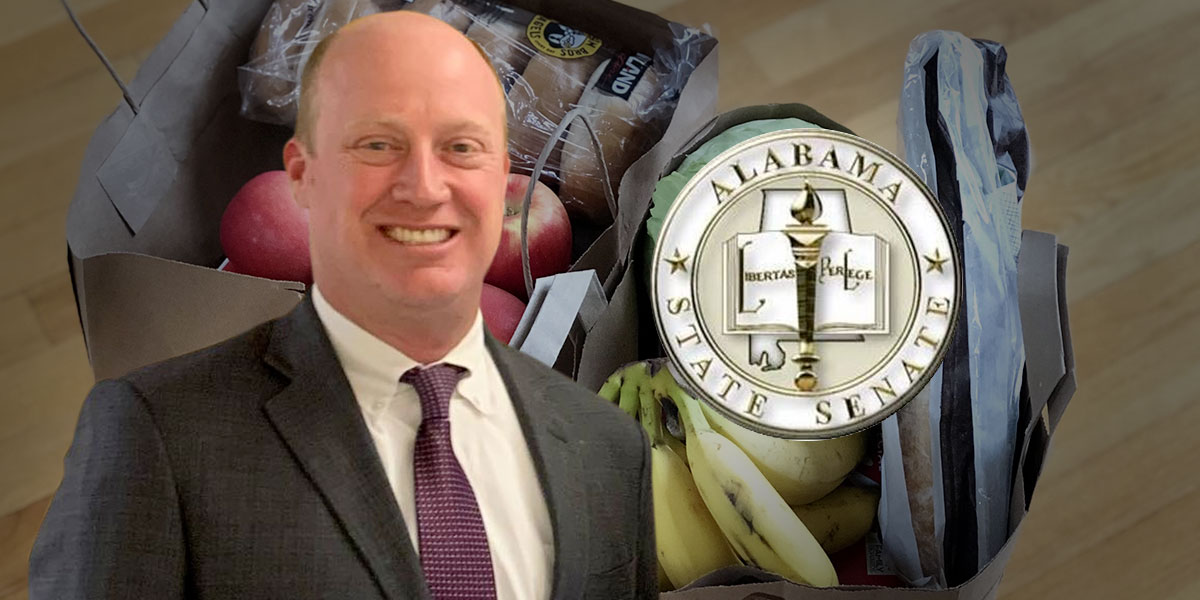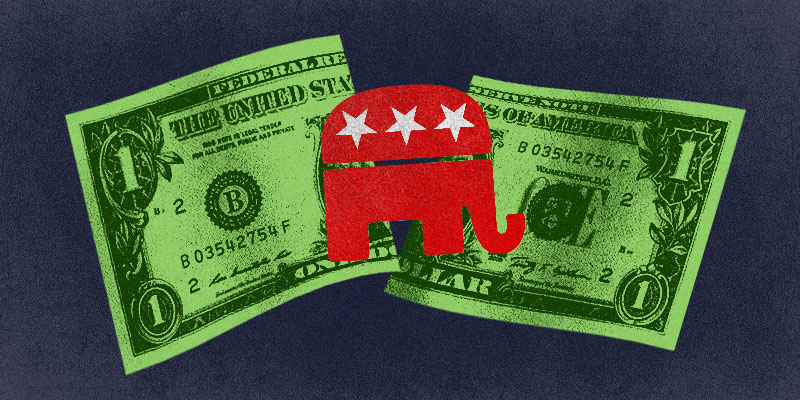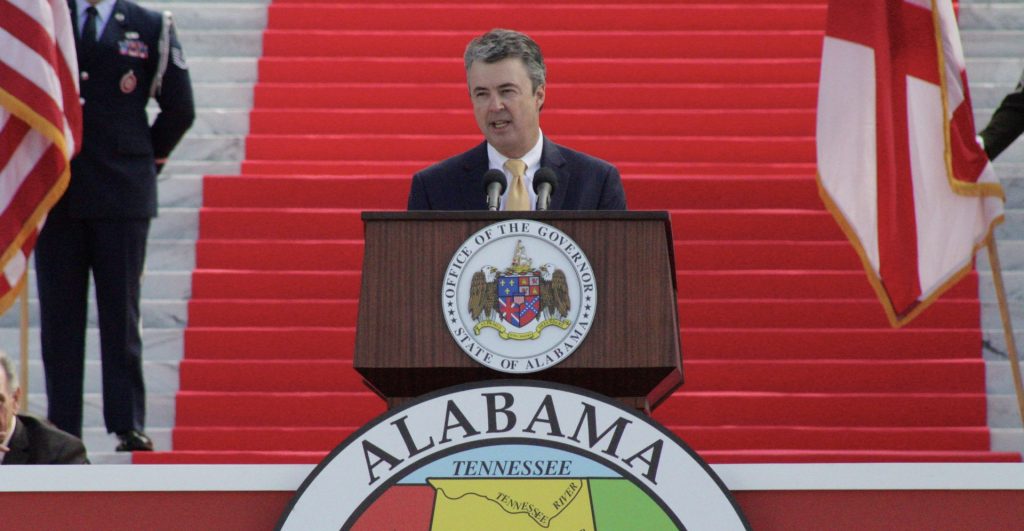The movement to cut the grocery tax in Alabama took its biggest step forward Thursday.
In a stunning announcement, Lt. Gov. Will Ainsworth revealed that all members of the Alabama Senate have signed onto a proposal to cut the tax in half this year — with a full cut on the way.
“With record budget surpluses and the highest employment rate in history, Alabama families deserve to have a dinner table tax cut,” Ainsworth said. “Best of all, it requires no offsetting tax increases of any kind.”
While other proposals have been filed to gradually reduce the tax — today’s bill, filed by Sen. Andrew Jones (R-Centre) — became the clear frontrunner.
“The fact that all 35 members of the State Senate – from the most conservative to the most liberal – are serving as co-sponsors offers strong evidence that our proposal is responsible and rooted in common sense,” Ainsworth said.
All 35 members of the State Senate agreed to co-sponsor our bill that will cut the state sales tax on groceries in half over the next few years and begin the process of removing it altogether. The $304 million tax cut is the largest in history. The time for action is now. pic.twitter.com/j5FIY1gPIc
— Will Ainsworth (@willainsworthAL) April 27, 2023
Alabama has a state sales tax of 4% and some local jurisdictions impose an additional sales tax of up to 7% — making the total sales tax rate in certain parts of Alabama as high as 11%.
RELATED: Most Alabamians want grocery tax ended
The bill would begin phasing-out the state sales and use tax on food Sept. 1.
Over the years, lawmakers have been reluctant toward a grocery tax cut because it could lead to a decrease in revenue for the Education Trust Fund (ETF) budget.
“When enacted, our $304 million tax cut will be the largest in Alabama history, but, at the same time, it protects classroom dollars for public education,” Ainsworth said.
Jones said the proposal will get the job done without any consequences to schools.
“The bill requires that there has to be 2% positive growth in the Education Trust Fund for the grocery tax to drop in a given year by half a cent,” he told Yellowhammer News. “We’re also working on a separate resolution, which would have a task force to look at how to get the final 2% off and go to zero.”
The legislation utilizes the SNAP definition of food, which includes just about any groceries in a supermarket. SNAP is recognized as more comprehensive than WIC. Neither definition includes items such as tobacco, beer and wine or non-food products.
Before the session, there was little discussion around the grocery tax. While proposals to reduce or eliminate the grocery tax come up every year, they never made it very far.
But given the budge surplus, Ainsworth and the bill’s supporters say now is the time to act on a plan to provide sustained relief to Alabamians on their most key expense.
RELATED: Daniels: Grocery tax cut would not cause less revenue
Gov. Kay Ivey proposed using the surplus from the education fund to provide a direct rebate of $400 to individuals and $800 to families who filed a 2021 tax return. However, given the price tag between rebates and permanent tax cut, those ideas now seem to be mutually exclusive.
Jones said he’s been working on the issue for several years and was influenced by those working on it for decades.
“My constituents, the people that I talk to, are saying instead of a one time rebate, how about you give us a rebate every year by taking off our grocery tax?” Jones said. “To them, that’s much more meaningful knowing that there’s gonna be relief at the grocery store year after year.”
Grayson Everett is a staff writer for Yellowhammer News. You can follow him on Twitter @Grayson270 for coverage of the 2023 legislative session.













